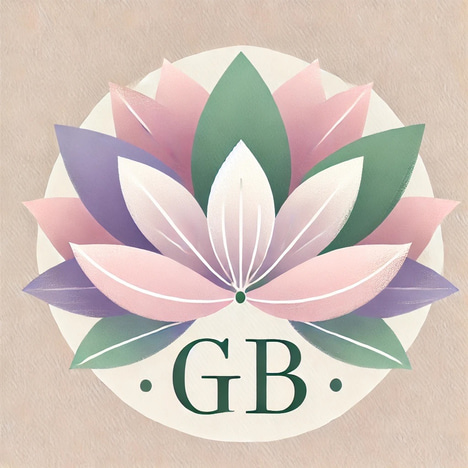gratitude in bloom
Embrace Mindfulness: Journaling, Meditation, and Self-Care Practices for Inner Peace
Explore the transformative power of mindfulness through journaling, meditation, and self-care. Discover techniques for visualization, manifestation, and breath work, all while surrounded by the serene colors of soft pink, lilac, and sage. Join us on a journey to cultivate peace and gratitude in your daily life.
JOURNALING
5/8/20244 min read


The Power of Journaling and Self-Reflection: Unlocking Your Inner Strength
In the fast-paced world we live in, it’s easy to get swept away by the demands of everyday life. The stress, responsibilities, and constant influx of information can overwhelm us. Finding balance can feel like an elusive goal. However, there’s a simple yet powerful tool that can help you regain that balance and reconnect with yourself—journaling.
Journaling is more than just writing words on paper. It’s a process of self-reflection, a way to organize your thoughts, manage emotions, and gain clarity on the complexities of life. Regular journaling helps you tap into your inner world, revealing insights about your emotional landscape, values, and personal growth. Whether you’re processing anger, embracing joy, or exploring your future goals, journaling is a tool that empowers you to transform your thoughts into purposeful action.
The Emotional Release of Writing
One of the greatest benefits of journaling is the emotional release it provides. We all experience a wide range of emotions—anger, sadness, fear, guilt, anxiety—but too often, we let these emotions fester inside. Writing about these emotions allows us to release the tension and examine them with greater clarity.
For instance, when you’re angry, it’s helpful to ask, “What boundary was crossed, and how can I find a solution?” Writing down these questions in your journal can help you express your frustration without letting it build up internally. By identifying the source of your anger and thinking through potential solutions, you start to feel more empowered and less reactive.
Similarly, if you’re feeling sad or disappointed, journaling can guide you to understand what expectation you had and why it wasn’t met. By reflecting on these unmet expectations, you begin to adjust your mindset, helping to process your emotions more healthily. This simple act of writing transforms complex emotions into something more tangible and solvable.
Gaining Clarity Through Reflection
Journaling also creates a space for self-reflection—a critical aspect of personal growth. When you reflect on your thoughts, behaviors, and patterns, you begin to understand yourself on a deeper level. Self-reflection helps you identify areas in your life where you can improve, such as setting stronger boundaries, managing anxiety, or even embracing change.
For example, many people feel overwhelmed by the demands of work, family, or personal obligations. Writing down these feelings and breaking them into smaller, manageable tasks can help you feel less overwhelmed and more focused. Asking yourself, “What’s overwhelming me right now?” followed by a list of action steps, can help you regain control over your life.
Self-reflection also enhances your emotional intelligence. By writing about your emotions and experiences, you become more in tune with your emotional triggers and reactions. This heightened awareness helps you respond to situations more thoughtfully rather than react impulsively.
Cultivating a Growth Mindset
Another key benefit of journaling is its ability to foster a growth mindset. A growth mindset is the belief that you can improve and develop through dedication and hard work. Journaling allows you to shift from a fixed mindset—where you believe that your abilities are set in stone—to a growth mindset that embraces learning and resilience.
For instance, reflecting on past challenges can reveal how much you’ve grown. What used to feel impossible may now seem manageable. Writing about these experiences reminds you that failure is not the end but an opportunity to learn. When faced with a challenge, ask yourself, “How can I turn this setback into a learning experience?” Journaling about your successes and struggles reinforces the idea that growth is a continuous journey.
Journaling is also an excellent way to track your progress. Whether you’re working toward a personal goal or trying to adopt healthier habits, writing about your daily experiences provides a tangible record of how far you’ve come. It becomes a source of motivation to keep pushing forward, even when the path feels difficult.
Building Gratitude and Positivity
In addition to processing emotions and fostering a growth mindset, journaling can help cultivate gratitude and positivity. Reflecting on the things you are grateful for—even on challenging days—shifts your perspective and enables you to focus on the positive aspects of life.
A simple daily gratitude prompt, such as “What are three things I’m grateful for today?” can make a huge difference in your mental and emotional well-being. Gratitude journaling enhances your overall happiness by focusing on what’s going right instead of dwelling on what’s wrong.
Acknowledging personal strengths can also cultivate positivity. When journaling, take time to reflect on your strengths, no matter how small they may seem. By recognizing these strengths, you reinforce a positive self-image and boost your confidence.
How to Start Your Journaling Practice
If you’re new to journaling, start with small steps. Use simple prompts like, “How am I feeling today?” or “What is one thing I want to accomplish this week?” The key is to be consistent, even if you only write for a few minutes each day.
Journaling is a powerful practice of self-care and self-discovery. Whether you’re navigating difficult emotions, seeking clarity, or celebrating personal growth, journaling gives you a safe space to reflect, process, and create meaningful change in your life.
So, grab a notebook, a pen, and start your journaling journey today. Your future self will thank you.
